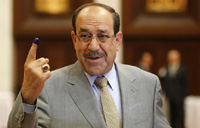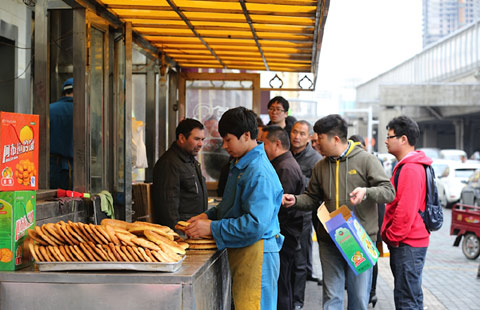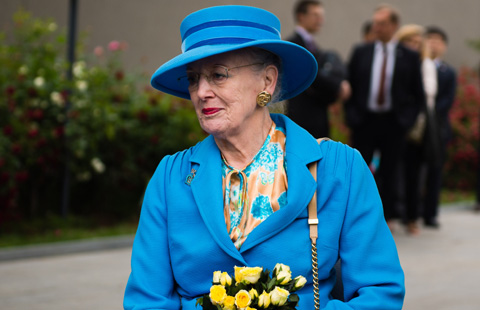Iraq's parliamentary elections test hope for change
Updated: 2014-04-30 19:25
(Xinhua)
|
|||||||||||
|
An Iraqi policeman helps an elderly woman as she leaves a polling station after voting during a parliamentary election in Baghdad April 30, 2014. Iraqis headed to the polls on Wednesday in their first national election since U.S. forces withdrew from Iraq in 2011, with Prime Minister Nuri al-Maliki seeking a third term amid rising violence. [Photo/Agencies] |
CRISIS-RIDDEN COUNTRY
The Iraqi Sunnis have long accused the Shiite-led government of marginalizing their community and its Shiite-dominated security forces of indiscriminately arresting, torturing and killing Sunni citizens.
In addition, the Kurds in the north are also at odds with the central government over oil resources, distribution of oil wealth and some disputed areas outside the Kurdish autonomous region.
|
 Iraqis begin to vote in parliamentary elections |
Such profound division and infighting among the Iraqi factions drastically reduced trust among the social and political leaders and created one of the most dysfunctional states in the history of Iraq.
Many important draft laws, including one related to oil resources, remain stuck in parliament due to severe political disputes. The parliament still has not been able to approve the draft general budget for 2014.
The persistence of hostility among Iraqi factions has stirred up sectarian and ethnic division, spurring the country to its worst levels of violence in recent years.
According to the UN Assistance Mission for Iraq, a total of 8, 868 Iraqis, including 7,818 civilians and civilian police personnel, were killed in 2013, the highest annual death toll in years.
The Iraqi government has garnered over 100 billion US dollars annually for the past several years from the nation's oil wealth, but many ordinary Iraqis are still left deprived of basic services, complaining that the wealth has been either wrongly exploited or wasted by corruption and mismanagement.
Related Stories
Suicide attack kills 10 in Iraq 2014-04-21 19:17
Iraq election chiefs quit amid violence 2014-03-27 08:52
US accelerates delivery of weapons to Iraq 2014-03-17 10:08
No arms deal signed between Iran and Iraq 2014-02-26 13:35
Iraq's Shiite cleric Moqtada al-Sadr quits politics 2014-02-16 16:37
48 killed, 119 wounded in Iraq violence 2014-02-06 10:06
Today's Top News
Russia's FM scolds West for imposing sanctions
Obama's trip not to achieve goals
Media mogul interested in Clippers
Director enjoys overseas success
Philippine pact gives US access to air, sea bases
Hunt resumes for bodies inside ferry
Ukrainian mayor wounded by gunfire
Alibaba IPO: Could be the biggest ever
Hot Topics
Lunar probe , China growth forecasts, Emission rules get tougher, China seen through 'colored lens', International board,
Editor's Picks

|

|

|

|

|

|





